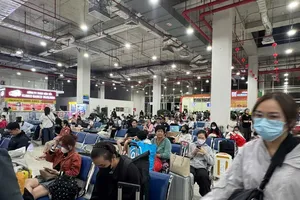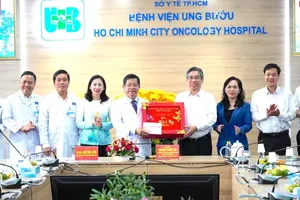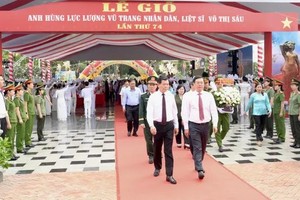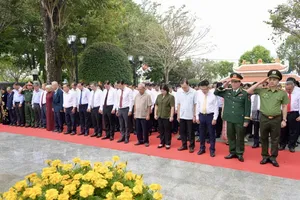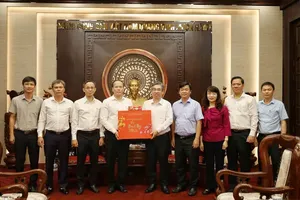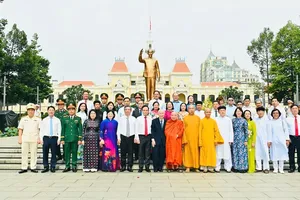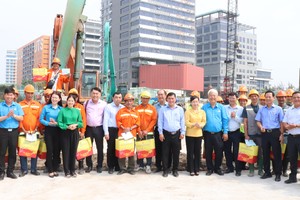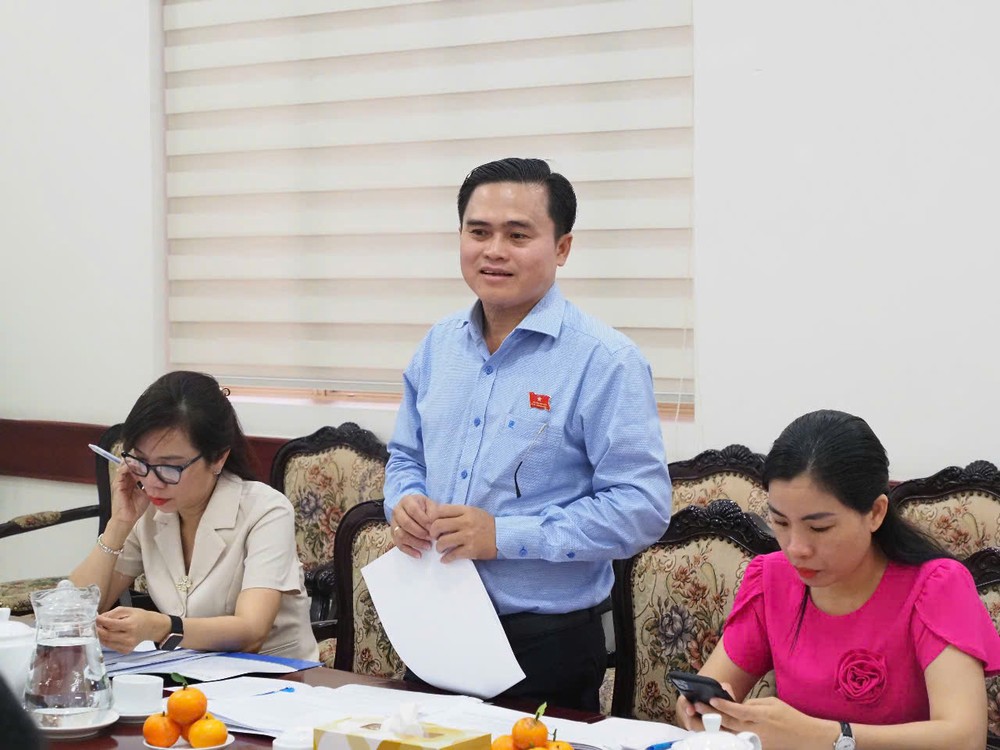
Mr. Cao Thanh Binh, Head of the Culture and Society Committee of the Ho Chi Minh City People's Council, on the morning of April 1, led a working delegation to meet with the Department of Finance, the Department of Education and Training, and the Management Board of Industrial and Civil Engineering Construction and Investment Projects of HCMC to discuss the implementation of a project to build 4,500 classrooms in celebration of the 50th anniversary of National Reunification Day.
At the meeting, Mr. Cao Thanh Binh noted that the project is still facing challenges due to both objective and subjective factors. He emphasized that delays in putting school construction projects into operation are placing additional pressure on the city’s budget, which must continue funding other policies and increasing recurrent expenditures. He urged departments and agencies to propose concrete solutions rather than general recommendations to resolve existing obstacles.
Given the ongoing nationwide efforts to streamline administrative structures, he suggested reviewing land plots that could be reclaimed for educational investment and leveraging available resources—human, material, and financial—to ensure the project’s successful implementation.
Mr. Tran Khac Huy, Head of the Financial Planning Division at the HCMC Department of Education and Training, reported on the implementation plan for the project to build 4,500 classrooms. He acknowledged that while progress has been slow and the number of completed classrooms has yet to meet targets, the project reflects the strong commitment, effort, and focus of various departments, agencies, and local authorities.
To address high demand for school spaces, local governments have prioritized clean public land to accelerate school construction and expand the education network in line with investment needs and local conditions.
For the 2021-2025 period, approximately VND18.288 trillion—10.6 percent of HCMC's total public investment capital—has been allocated to education to build additional classrooms and keep pace with population growth. By the end of 2025, an estimated 2,000 new classrooms will be in use, including 1,200 funded by public investment and 800 through social investment, achieving 50 percent of the project’s target.
To further mobilize social resources for education and training from 2022 to 2025, the HCMC People’s Committee issued Decision No.766/QD-UBND (March 17, 2022) to implement Government Resolution No.35/NQ-CP (June 4, 2019). The city has also approved a project on the social investment in education and training development for 2023-2025, with a vision toward 2030.
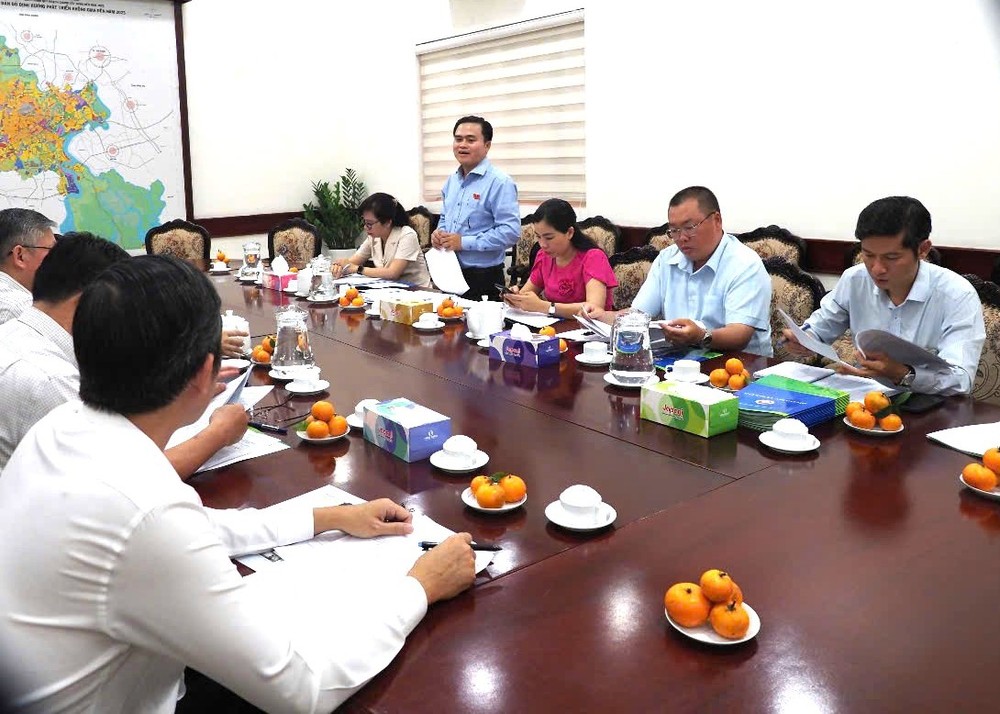
The representative of the HCMC Department of Education and Training explained that delays in project implementation stem from significant legal changes affecting public investment, planning, land use, environmental regulations, and transportation during the 2021-2025 medium-term public investment phase. Many new school construction projects are planned on land that requires reclamation, compensation, and site clearance, all of which involve lengthy procedures. Rising costs due to price fluctuations and updated regulations aligned with market economic conditions have further increased investment demands.
Public-private partnerships in education remain a new and untested model, with unclear regulations and guidance, making it difficult to attract both domestic and foreign investors. The city also lacks strong incentive policies to effectively mobilize social resources for education investment.
To address these challenges, the Department of Education and Training has proposed that the HCMC People’s Committee direct the 21 districts and Thu Duc City to expedite the approval of adjustments to 1/2000 and 1/500 zoning plans, as well as underground space planning for projects with basement construction, ensuring smoother implementation.
Additionally, the department recommends that the People’s Committee assign the Department of Finance and the Department of Natural Resources and Environment to collaborate with local authorities to review and develop plans for land reallocation to expand the education land fund. It also calls for stricter enforcement against investors who have been allocated land and approved for school construction in new residential areas but have yet to fulfill their commitments.
